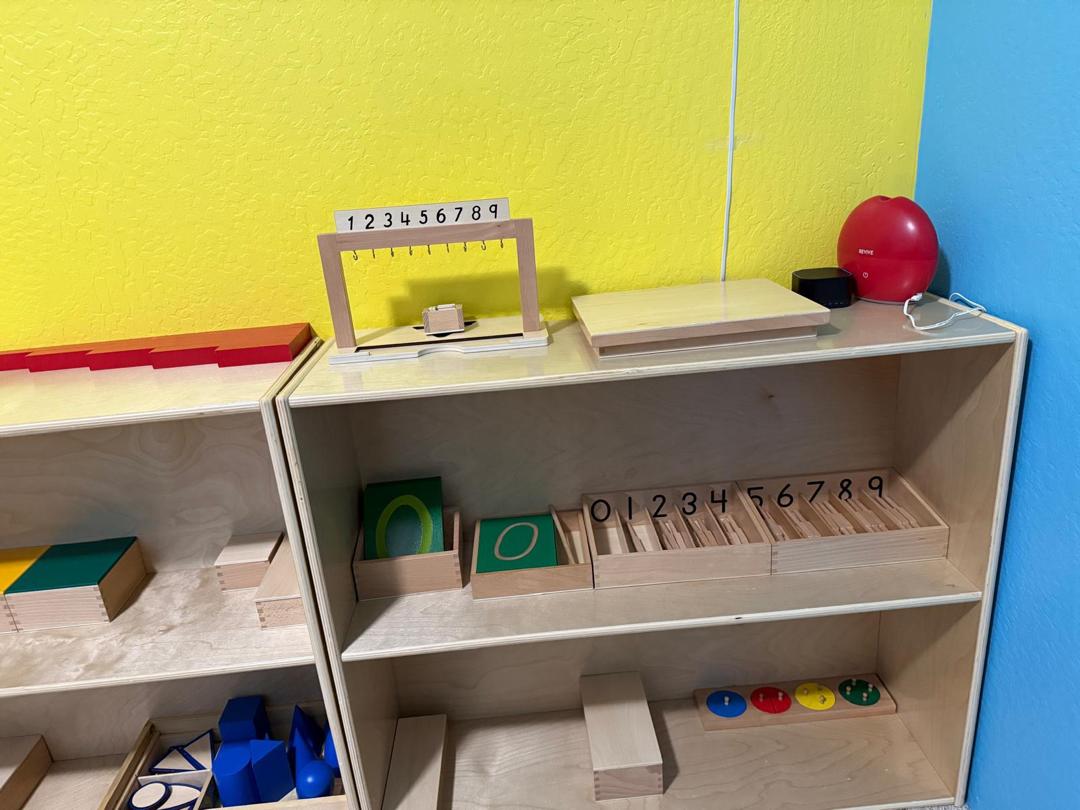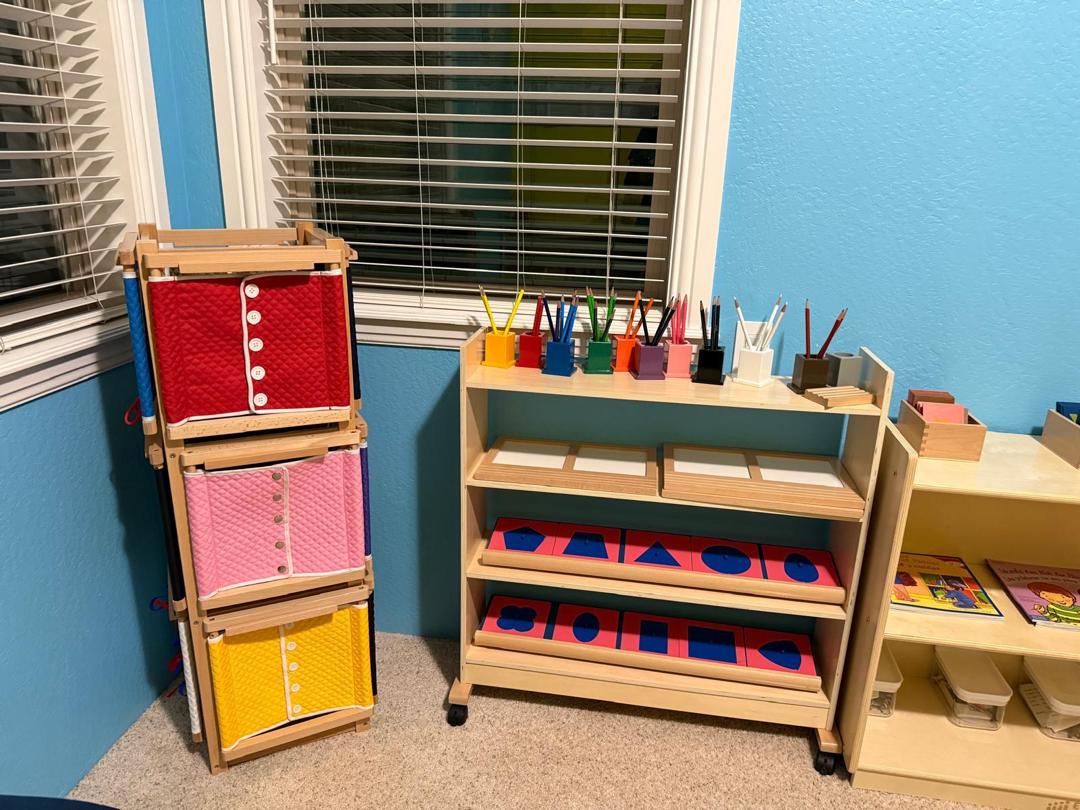
Montessori Philosophy
The foundation of our educational approach

The foundation of our educational approach

Dr. Maria Montessori (1870-1952) was an Italian physician and educator who revolutionized early childhood education through her scientific observations of children. Her groundbreaking work began in Rome in 1907 when she opened the first "Casa dei Bambini" (Children's House) and discovered that children possess an innate desire to learn when placed in a properly prepared environment.
Through careful observation, Dr. Montessori recognized that children learn best when they are free to explore and discover at their own pace. She identified sensitive periods in child development when children are particularly receptive to acquiring specific skills and knowledge. Her method respects the natural development of the child and recognizes that education is not about filling a vessel, but about lighting a fire of curiosity and love for learning.
Today, the Montessori method is practiced in over 20,000 schools worldwide, serving children from birth through adolescence. Her philosophy emphasizes respect for the child, hands-on learning, and the development of the whole person - academically, socially, emotionally, and physically.
The prepared environment is a cornerstone of Montessori education. It is carefully designed to foster independence, concentration, and joy in learning. Every element in a Montessori classroom has a specific purpose and is placed at child height to encourage autonomy and self-directed exploration.
Our classrooms feature:
Montessori materials are scientifically designed learning tools that isolate specific concepts and skills. Each material has a built-in "control of error," allowing children to recognize and correct their own mistakes independently. These hands-on materials move from concrete to abstract, helping children build deep understanding through sensory exploration.
The materials cover five key curriculum areas: Practical Life, Sensorial, Mathematics, Language, and Cultural Studies. They are self-correcting, beautiful, and invite repeated practice, allowing children to master skills through joyful repetition rather than external rewards or punishments.

In Montessori education, the teacher's role transforms from the traditional "sage on the stage" to a "guide on the side." Our certified Montessori educators are trained observers and facilitators rather than lecturers.
Teachers carefully observe each child to understand their interests, developmental stage, and readiness for new challenges. This observation informs individualized lesson planning.
Rather than directing learning, teachers present materials and concepts, then step back to allow children to explore and discover independently.
Teachers connect children with appropriate materials and activities, matching each child's developmental needs with learning opportunities in the prepared environment.
Teachers create a warm, respectful atmosphere where children feel safe to take risks, make mistakes, and grow at their own pace without judgment.
"I will observe you carefully, respect your unique journey, and provide the guidance you need without interrupting your concentration. I will prepare an environment where you can flourish, trust in your innate ability to learn, and celebrate your discoveries. I am not here to fill you with knowledge, but to light the spark of curiosity that will fuel your lifelong love of learning."

One of Dr. Montessori's most famous quotes is "Help me to do it by myself." This principle guides everything we do at ABC Montessori Center. We believe that true learning comes from within the child, and our role is to provide the environment and support that allows children to develop independence in all areas of life.
From the moment children enter our program, they are encouraged to do things for themselves - putting on their own shoes, choosing their work, preparing snacks, and cleaning up after activities. These practical life skills build confidence, coordination, and a sense of capability that extends far beyond the classroom.
Self-directed learning doesn't mean chaos. In Montessori education, children have freedom within carefully established limits. They can choose their activities, work at their own pace, and decide how long to spend on a task - but they must respect the classroom rules, care for materials, and allow others to work undisturbed.
This balance of freedom and responsibility teaches children self-discipline, time management, and respect for others. They learn to make good choices, manage their time, and take ownership of their learning journey. These skills serve them not just in school, but throughout their lives.
Unlike traditional education that relies on external rewards like grades and stickers, Montessori education cultivates intrinsic motivation. Children work because they are genuinely interested and find satisfaction in mastering new skills. They learn to evaluate their own progress, celebrate their own achievements, and develop a growth mindset that embraces challenges as opportunities to learn.
Every child is valued as a unique individual with their own timeline of development, interests, and learning style.
Young children possess a unique ability to absorb information from their environment effortlessly, like a sponge.
Children go through specific periods when they are particularly receptive to learning certain skills and concepts.
Multi-age classrooms allow younger children to learn from older peers and older children to reinforce their knowledge by teaching.
Children need extended periods of time (2-3 hours) to deeply engage with their chosen work without interruption.
Montessori education prepares children not just for tests, but for life - developing character, responsibility, and social consciousness.
See our philosophy in action at ABC Montessori Center